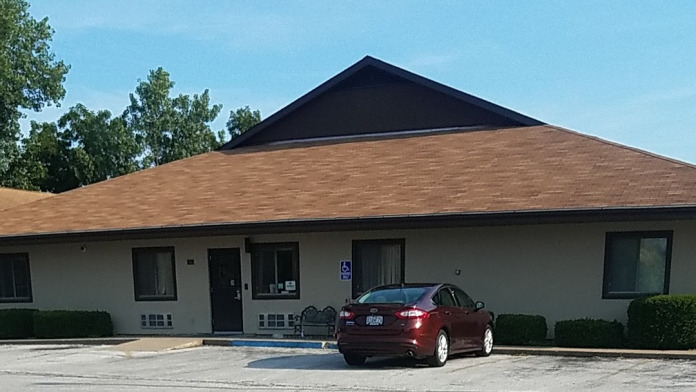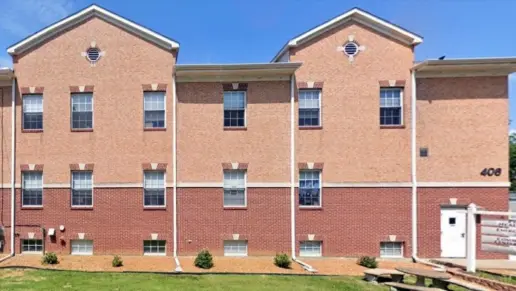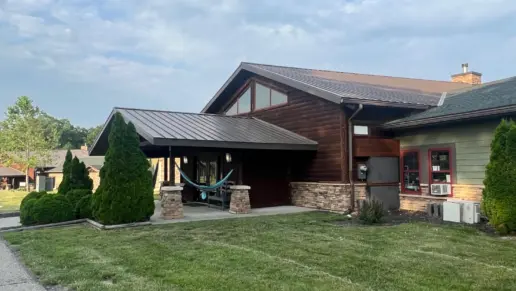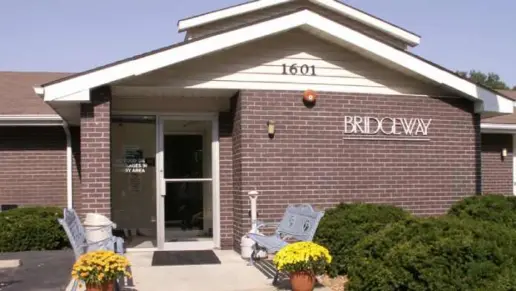The experience that I lived in Turning Point was amazing; the programs were very well structured, they provide me with the help that I need at the right time. I found that the services offered by them are beneficial.
About Mark Twain Behavioral Health
Formerly the Turning Point Recovery Centers, Mark Twain Behavioral Health, located in Hannibal, Missouri, is an alcohol and drug treatment program for adolescents and adults. They offer an extensive scope of care for clients impacted by substance use disorder. Available programs include medication assisted treatment, residential treatment, outpatient counseling, and aftercare services. Specialized support is available for clients facing drug-related charges and clients with co-occurring conditions.
Their medication assisted treatment program provides stabilization for adult clients with substance use disorder, combining comprehensive medical, psychiatric, and behavioral counseling services When detox is completed in an inpatient setting, there’s monitoring of vital signs and withdrawal symptoms to ensure the process is as comfortable as possible. When detox is completed on an outpatient basis, monitoring cannot be continuous. The length of detox and the method used varies depending on what is best for each person. Detox can be voluntary and court-ordered 96-hour holds are also accepted. As needed, FDA approved medications are used to support withdrawal from opioid drugs and to help maintain long-term abstinence. By combining medication with mental health treatment, a greater chance of success is achieved for long-term abstinence.
Residential treatment is for individuals who need a high level of support and accountability during the initial phase of their recovery. Mental, emotional, and physical stability is a primary focus. Once this is achieved, deeper inner work is started. Available services include individual therapy, group therapy, family counseling, and addiction educational classes. Specific topics may include emotional regulation, anger management, trauma-informed care, relapse prevention, and life skills classes such as financial stability, education, and workforce readiness.
Outpatient treatment programming offers a more flexible approach to addiction treatment. This service provides continued support for addiction recovery through individual therapy, group therapy, and educational classes on addiction and recovery. Medications may be managed and for those in need, trauma support may be offered. The goal is to continue to move you toward a life of recovery and a suitable aftercare treatment plan that allows for reintegration into society.
Mark Twain Behavioral Health may accept most forms of private insurance. Confirm your coverage with your individual provider as out of network benefits can vary. They’re also accredited by the Commission on Accreditation of Rehabilitation Facilities (CARF).
Rehab Score
Gallery

Location
Accepted Insurance
Other Forms of Payment
Medicaid is a state based program that helps lower-income individuals and families pay for healthcare. Medicaid covers addiction treatment so those enrolled can use their coverage to pay for rehab. When a program accepts Medicaid the client often pays very little or nothing out of their own pocket.
Private insurance refers to any kind of healthcare coverage that isn't from the state or federal government. This includes individual and family plans offered by an employer or purchased from the Insurance Marketplace. Every plan will have different requirements and out of pocket costs so be sure to get the full details before you start treatment.
Self-pay involves paying for treatment out of your own pocket. You can use savings or credit, get a personal loan, or receive help from family and friends to fund your treatment. If you don't have insurance or your insurance plan doesn't cover a specific program, self-pay can help ensure you still get the care you need.
Financial aid can take many forms. Centers may have grants or scholarships available to clients who meet eligibility requirements. Programs that receive SAMHSA grants may have financial aid available for those who need treatment as well. Grants and scholarships can help you pai for treatment without having to repay.
Sliding scale payments are based on a client's income and family size. The goal is to make treatment affordable to everyone. By taking these factors into account, addiction recovery care providers help ensure that your treatment does not become a financial burden to you or your family, eliminating one barrier to care.
Medicare is a federal program that provides health insurance for those 65 and older. It also serves people under 65 with chronic and disabling health challenges. To use Medicare for addiction treatment you need to find a program that accepts Medicare and is in network with your plan. Out of pocket costs and preauthorization requirements vary, so always check with your provider.
Military members, veterans, and eligible dependents have access to specific insurance programs that help them get the care they need. TRICARE and VA insurance can help you access low cost or no cost addiction and mental health treatment. Programs that accept military insurance often have targeted treatment focused on the unique challenges military members, veterans, and their families face.
Addiction Treatments
Levels of Care
Treatments
The goal of treatment for alcoholism is abstinence. Those with poor social support, poor motivation, or psychiatric disorders tend to relapse within a few years of treatment. For these people, success is measured by longer periods of abstinence, reduced use of alcohol, better health, and improved social functioning. Recovery and Maintenance are usually based on 12 step programs and AA meetings.
Drug rehab in Missouri usually involves several phases: detox, rehab, and aftercare. The rehab phase may include a combination of inpatient and outpatient treatments, as the individual moves through a continuum of care on their recovery journey.
Opioid rehabs specialize in supporting those recovering from opioid addiction. They treat those suffering from addiction to illegal opioids like heroin, as well as prescription drugs like oxycodone. These centers typically combine both physical as well as mental and emotional support to help stop addiction. Physical support often includes medical detox and subsequent medical support (including medication), and mental support includes in-depth therapy to address the underlying causes of addiction.
Substance rehabs focus on helping individuals recover from substance abuse, including alcohol and drug addiction (both illegal and prescription drugs). They often include the opportunity to engage in both individual as well as group therapy.
Programs


Clinical Services
Research clearly demonstrates that recovery is far more successful and sustainable when loved ones like family members participate in rehab and substance abuse treatment. Genetic factors may be at play when it comes to drug and alcohol addiction, as well as mental health issues. Family dynamics often play a critical role in addiction triggers, and if properly educated, family members can be a strong source of support when it comes to rehabilitation.
Group therapy is any therapeutic work that happens in a group (not one-on-one). There are a number of different group therapy modalities, including support groups, experiential therapy, psycho-education, and more. Group therapy involves treatment as well as processing interaction between group members.
In individual therapy, a patient meets one-on-one with a trained psychologist or counselor. Therapy is a pivotal part of effective substance abuse treatment, as it often covers root causes of addiction, including challenges faced by the patient in their social, family, and work/school life.
Staff & Accreditations
Staff

President

VP

President & CEO

VP of Clinical Operations

VP of Finance

VP of Human Resources

VP of Specialized Community Services

Medical Director

Director of Clinical Services

Clinical Director of Recovery Services

Director of Marketing and Community Development

Information Systems Director
Accreditations

The Commission on Accreditation of Rehabilitation Facilities (CARF) is a non-profit organization that specifically accredits rehab organizations. Founded in 1966, CARF's, mission is to help service providers like rehab facilities maintain high standards of care.
CARF Accreditation: Yes

The Substance Abuse and Mental Health Services Administration (SAMHSA) is a branch of the U.S. Department of Health and Human Services. Established in 1992 by congress, SAMHSA's mission is to reduce the impact of substance abuse and mental illness on American's communities.
SAMHSA Listed: Yes
Contact Information
146 Communications Drive
Hannibal, MO 63401







